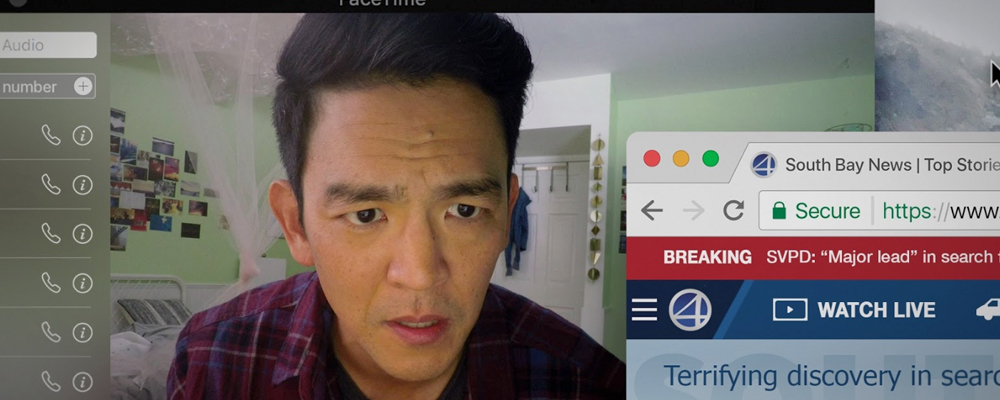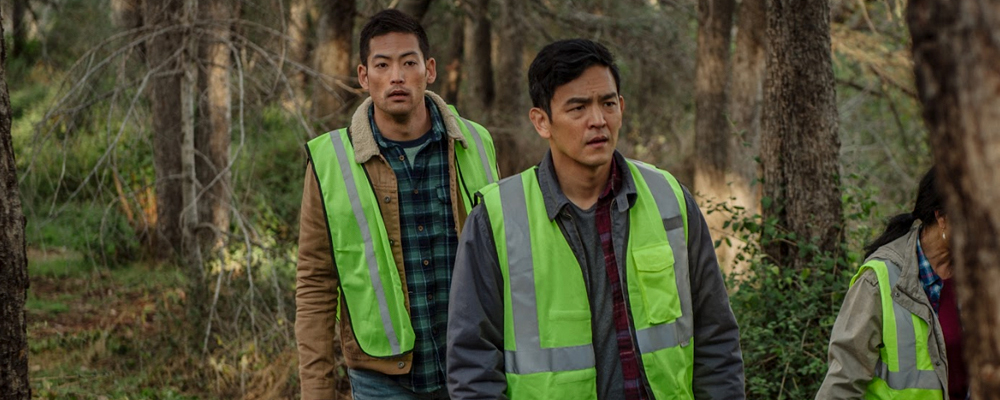A Father Turns to the Internet to Find His Missing Daughter in Clever Thriller ‘Searching’
Michael Amundsen
Often it is not the story that is being told as much as how is it told. “Memento” with its conceit of short-term memory loss or any of the found footage films like “Cloverfield” or “The Blair Witch Project” are examples where technique informs the narrative. Now into this genre comes the mystery thriller “Searching.”
“Searching” is the story of a single father David Kim (John Cho) whose main communication with his daughter Margot (Michelle Ya) can be summed up by a regular lecture about taking out the garbage. It’s a daily thing with him and he holds to it as evidence that he is doing his fatherly duty. He goes to work, Facetimes with Margot about studies at her high school and texts her pictures of the overflowing garbage can. And he is fairly satisfied that he has done all he needs to do by way of being a dad. Until the day comes when she stops answering his texts.
Not just his texts, but his emails and finally his phone calls. The last he has heard from her was when Margot called to tell him she was going to stay late at a study session. While he sleeps, she calls him twice and then attempts a face time. He sleeps through all three attempts.
When he finally discovers the messages, Margot does not answer. She is nowhere to be found. He contacts the police and award-winning detective Rosemary Zick (Debra Messing) is on the case.
What makes this film stand out from regular child missing stories is that everything in this movie is told from the point of view of computer screens, cell phones (mostly on Face Time), news casts, old videos (seen on computer screens) or surveillance cameras. It’s like the surveillance footage in “Paranormal Activity,” only with a greater variety of technology.
In “Searching,” the use of technology is not just a clever (or cheap) way of advancing the narrative. Daddy David’s relationship with daughter Margot has been on a steady decline since the death by cancer of his wife, Margot’s mother. It seems that by now he has no real connection with Margot except through the Internet or Face Time. It becomes only fitting that to discover to where Margot has disappeared, Daddy David has to learn more about the real Margot. And since she is no longer around as real physical presence, he goes online. He hacks her social media accounts. He chats with her schoolmates and learns that her relationship with them has been mostly confined to shallow friendships on Face Book, Tumblr, Instagram and, most revealing of all, on-line chat rooms.
In the structure of a well-told, compelling and suspenseful mystery lies a poignant commentary on the dominating influence of media, social or otherwise, as arbiters of our humanly interactions. While the film’s ending can either satisfy or annoy depending the point of view of the individual viewer, it took a lot of hard work and creativity on the part of the writer/ director Aneesh Chaganty and co-writer Sev Ohanian along with the supportive brilliance of the rest of the creative crew to get us to that point.
But for all of its originality, the most important storyline in “Searching” is about parents and their need to know their children. Watching David Kim learn how little he knew about his own daughter even though he filled the roles of both parents is for him a humiliating experience. In “Searching,” it is in that revelation that salvation, if at all possible at this late stage of the game, can be made possible.
“Searching” opens Aug. 24 in Los Angeles and New York, Aug. 31 nationwide.




